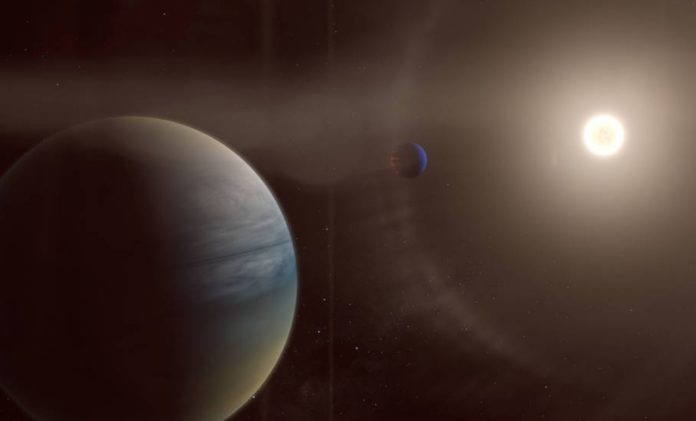Members of Citizen science have discovered two previously unexplored gas planets orbiting a star similar to the sun. The star is approximately 352 light-years from Earth.
The corresponding discovery was made by amateur astronomers in the framework of the Planet Hunters TESS project, a citizen science program funded by NASA that explores the evidence of planets unknown to humanity and beyond our solar system, or exoplanets.
- Neuroscience Breakthrough: Study Pinpoints Brain Activity That Helps Prevent Us From Getting Lost
- Brief Anger Hampers Blood Vessel Function Leading to Increased Risk of Heart Disease and Stroke – New Study
- New Blood Test Pinpoints Future Stroke Risk – Study Identifies Inflammatory Molecules as Key Biomarker
- Enceladus: A Potential Haven for Extraterrestrial Life in its Hidden Ocean Depths
- New Experiment: Dark Matter Is Not As ‘DARK’ As All We Think
NASA reports that the mass of the star, called HD 152843, is comparable to the mass of the Sun, but it is one and a half times larger and slightly brighter.
As for the gas planets, one of them is similar in size to Neptune.
The object, dubbed Planet b, is 3.4 times the size of Earth and orbits a star in about 12 days.
The second planet, Planet C, is 5.8 times the size of Earth, with an orbital period of approximately 19-35 days.
It is noted that about 29,000 volunteers from all over the world take part in the Planet Hunters TESS project. They are helping scientists search for planetary traces in the data received by the TESS telescope.
“Studying them together, both of them at the same time, is really interesting to constrain theories of how planets both form and evolve over time,” says Nora Eisner, a doctoral student in astrophysics at the University of Oxford and lead author of the study.
- Neuroscience Breakthrough: Study Pinpoints Brain Activity That Helps Prevent Us From Getting Lost
- Brief Anger Hampers Blood Vessel Function Leading to Increased Risk of Heart Disease and Stroke – New Study
- New Blood Test Pinpoints Future Stroke Risk – Study Identifies Inflammatory Molecules as Key Biomarker
- Enceladus: A Potential Haven for Extraterrestrial Life in its Hidden Ocean Depths
- New Experiment: Dark Matter Is Not As ‘DARK’ As All We Think
“We’re taking baby steps towards the direction of finding an Earth-like planet and studying its atmosphere, and continue to push the boundaries of what we can see,” Eisner said.
